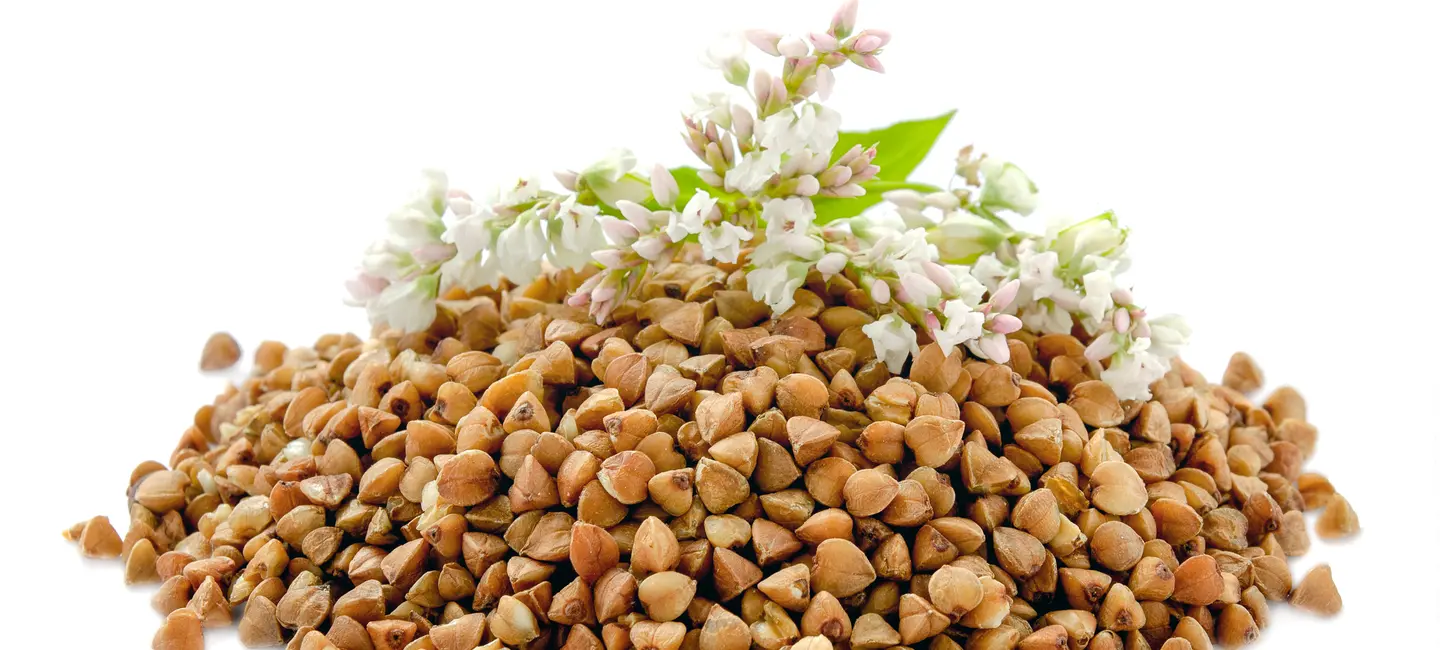
Buckwheat is a plant. People make flour from the outer shell of the seeds. This flour can be used either as food (usually in bread, pancakes, and noodles) or as medicine.
Buckwheat is used for diabetes, heart disease, high cholesterol, varicose veins, and other conditions, but there is no good scientific evidence to support these uses.
Is It Effective?
NatMed Pro rates effectiveness based on scientific evidence according to the following scale: Effective, Likely Effective, Possibly Effective, Possibly Ineffective, Likely Ineffective, Ineffective, and Insufficient Evidence to Rate.
- Heart disease. Taking buckwheat might lower some markers of heart disease, including cholesterol, triglycerides, and blood sugar in people who are healthy or those with diabetes or high cholesterol. But buckwheat doesn't seem to improve blood pressure, body weight, or other types of cholesterol. It's unknown if buckwheat lowers the chance of death, heart attack, or stroke in people with heart disease.
- Poor circulation that can cause the legs to swell (chronic venous insufficiency or CVI). Early research shows that drinking buckwheat tea might prevent leg swelling from getting worse in people with circulation problems.
- Diabetes. Early research shows that replacing a portion of white flour or rice in foods with buckwheat lowers fasting insulin levels in people with diabetes. But it doesn't improve fasting blood sugar or average blood sugar.
- Vision problems in people with diabetes (diabetic retinopathy). Early research shows that taking buckwheat does not improve vision in people with visions problems due to diabetes.
- Constipation.
- Hardening of the arteries (atherosclerosis).
- High blood pressure.
- High cholesterol.
- Obesity.
- Varicose veins.
- Other conditions.
More evidence is needed to rate the effectiveness of buckwheat for these uses.
Is it Safe?
Buckwheat might help people with diabetes by slowing the break-down of some foods into sugar and improving how well the body deals with blood sugar.
When taken by mouth: Buckwheat is POSSIBLY SAFE for adults when taken by mouth as a medicine. Buckwheat can cause allergic reactions in some people.
Special Precautions & Warnings:
Pregnancy and breast-feeding: There isn't enough reliable information to know if buckwheat is safe to use when pregnant or breast-feeding. Stay on the safe side and avoid use.
Buckwheat allergy: Some people who are exposed to buckwheat on the job develop buckwheat allergy. Other people can also become allergic to buckwheat. Re-exposure to buckwheat can lead to serious allergic reactions including skin rash; runny nose; asthma; and a potentially fatal drop in blood pressure, itching, swelling, and difficulty in breathing (anaphylactic shock).
Celiac disease or gluten sensitivity: Some people used to think that including buckwheat in a gluten-free diet might not be safe. However, buckwheat is considered an acceptable food by the Celiac Disease Foundation and the Gluten Intolerance Group. Unless someone is allergic to buckwheat, people with celiac disease or gluten sensitivity can eat buckwheat produced in a facility free of gluten safely.
Allergies to latex or other foods, including rice: Some people who are allergic to rice might also become allergic to buckwheat.
It is not known if Buckwheat interacts with any medicines. Before taking Buckwheat, talk with your healthcare professional if you take any medications.
There are no known interactions with herbs and supplements.
There are no known interactions with foods.
The appropriate dose of buckwheat for use as treatment depends on several factors such as the user's age, health, and several other conditions. At this time there is not enough scientific information to determine an appropriate range of doses for buckwheat. Keep in mind that natural products are not always necessarily safe and dosages can be important. Be sure to follow relevant directions on product labels and consult your pharmacist or physician or other healthcare professional before using.
Alforfón, Blé Noir, Buchweizen, Coomon Buckwheat, Fagopyrum esculentum, Fagopyrum sagittatum, Fagopyrum tataricum, Fagopyrum vulgare, Grano Turco, Polygonum tataricum, Sarrasin, Sarrasin Commun, Silverhull Buckwheat, Sweet Buckwheat, Tartary Buckwheat, Trigo Sarraceno.
Information on this website is for informational use only and is not intended to replace professional medical advice, diagnosis, or treatment. While evidence-based, it is not guaranteed to be error-free and is not intended to meet any particular user’s needs or requirements or to cover all possible uses, safety concerns, interactions, outcomes, or adverse effects. Always check with your doctor or other medical professional before making healthcare decisions (including taking any medication) and do not delay or disregard seeking medical advice or treatment based on any information displayed on this website.
© TRC Healthcare 2024. All rights reserved. Use and/or distribution is permitted only pursuant to a valid license or other permission from TRC Healthcare.
